Reviews
John Hughes
USA, 1985
Credits
Review by Katherine Follett and Anna Bak-Kvapil
Posted on 27 January 2011
Source Universal DVD
Categories Blind Spots
We’re all pretty bizarre. Some of us are just better at hiding it, that’s all.
Introduction by Katherine Follett
I first watched The Breakfast Club in early high school. Not just when I was high-school age, but actually during class, as part of the curriculum. It was in one of those health/home ec/lifestyle-decisions classes that stand in for true sex ed in American public education. Our teacher introduced The Breakfast Club as something we needed to know along with the side effects of marijuana and the failure rate for oral contraceptives. And unlike so much else in those dust-dry lessons, The Breakfast Club seemed relevant, absorbing, and immediate. While I was a teenager, I never doubted for a moment that The Breakfast Club was a critical document and one of the most important lessons to be learned from adolescence.
It has certainly been said that one of John Hughes’ greatest strengths was his ability to capture the mindset of an American teenager. In many ways, The Breakfast Club is his best example. Hughes ropes in pretty much every teen stereotype in place in a 1980s high school, and puts them in an archetypal teenage setting. The characters have just enough human depth for any teenager relate to at least one of them. (I was Judd Nelson, minus the domestic abuse, trapped in the social status of Anthony Michael Hall.) The setting evokes so much of how I remember high school: boredom, frustration, belittlement, powerlessness, being accounted for yet basically unsupervised, and being trapped with people with whom you’d never usually socialize—and who let you know in the most cruel way possible that they have no interest in ever doing so.
But like many teenagers, The Breakfast Club, for all its rebellion, isn’t quite self-actualized enough to shuck the status quo. Allie Sheedy ends up wearing pink and kissing a boy. Anthony Michael Hall ends up doing the stupid assignment for the rest of them. When I was in high school, I didn’t notice these problems. I secretly still hoped to transform into a pretty, popular girl, yet I felt like it was my social obligation to let people cheat off my homework. The simplicity and relative shallowness of Hughes’ films just didn’t register with someone whose life experience was, until that point, pretty simple and shallow.
Certainly, people my age are old enough to be the parents of teenagers (though not many are). Many of us have become teachers and other authority figures. We’re closer in age to Principal Vernon than we are to the heroes of The Breakfast Club. So what happens when someone sees The Breakfast Club for the first time as one of those adults? Are the teenage characters compelling enough to inspire nostalgia in people ten or even twenty years past adolescence? Or was John Hughes so spot-on at depicting teenagers that watching The Breakfast Club becomes as exasperating as hanging out with actual teenagers?
I can’t say I’ve seen The Breakfast Club since adolescence, or at least college, which is pretty much still adolescence in our culture. Perhaps you can’t really appreciate the movie if you don’t see it as a teenager—not because it is incompetent, but because it does such a specific thing so spectacularly well. Good luck to the grown-up who takes it on.
Review by Anna Bak-Kvapil
The films of John Hughes famously defined a generation, but it wasn’t quite my generation. Hughes fans my age had had older siblings who introduced them to his films, but I never had that slumber party experience where it seemed like Sixteen Candles was holding up a mirror to my life. My peer group was into Empire Records, Scream and Romeo + Juliet, and we pretty much believed that only films made after 1995 were cool enough to model our relationships and personal style on. So I’m not very familiar with most of John Hughes’s work, apart from a cursory viewing of Ferris Bueller’s Day Off, and an abortive attempt to watch Weird Science. Trying to catch up with Brat Pack films in my twenties felt a little sad, tinged with that “you had to be there” regret at not being present for the moment when something really seized the zeitgeist. I didn’t expect to enjoy The Breakfast Club.
Watching The Breakfast Club 25 years after it was in theaters did make me sad, not because I was too young for its first wave of 80s popularity, but because I had never seen it as a teenager. I’m certain it would have meant a lot to me then, as it seems to have for most people who saw it at a formative moment in their adolescence. Realizing that everyone, from prom queen to valedictorian, is a lonely, angry, hypocritical freak inside is an essential thing to be reminded of in high school, and something Clueless didn’t teach me. The Breakfast Club finally made me understand why people love John Hughes so much.
At the risk of sounding like a fogey, it is incredible to me that such a simple, contained film was so successful when it came out—kids nowadays need rampant lifestyle porn and synchronized dance numbers to liven up their comedies (ok, The Breakfast Club does have dance numbers, but they’re Twyla Tharp-esque improvisations). Talky and playful, The Breakfast Club is loosely and easily strung together, a series of vignettes about “a brain, an athlete, a basket case, a princess, and a criminal” stuck in detention in a high school library in Shermer, Illinois. Over the course of one day, egos collide, hormones simmer and secrets are revealed. It’s as though Eric Rohmer directed Lifeboat with a teenage cast. The guiding philosophy behind the film is summed up by “the brain”: “We’re all pretty bizarre. Some of us are just better at hiding it, that’s all.”
Perhaps because The Breakfast Club takes place in a confined setting, it’s one of the least dated 80s films I’ve seen. The kooky fashions and hairstyles are toned down, and mentions of pop culture are kept to a minimum, although a hilarious amount of odd slang is tossed around, mostly by “the criminal” Bender. Phrases and words like “brownie hound” “he really pumps my nads” “wasteoid” “riding the hobbyhorse” and “neo-maxi-zoon-dweebie,” seem invented for the movie, the unfamiliarity of the lingo separating the kids even more from the adult world.
Along with The Big Chill, Fast Times at Ridgemont High and St. Elmo’s Fire, The Breakfast Club is one of the great 80s ensemble movies, with a near perfect cast. Molly Ringwald, Anthony Michael Hall, Emilio Estevez, Judd Nelson and Ally Sheedy are all at the fresh, exciting beginning of their careers, and bring an effervescent physicality to their roles. They seem genuinely comfortable with each other, the kind of instinctual comfort that only actors who feel safe with a director can demonstrate, as though they knew John Hughes was bringing out the best in their performances. Given their obvious talent, it’s inexplicable that The Breakfast Club was the career highpoint for almost everyone in it.
The cast nails the posturing of high school kids, the chilly exteriors that function as a disguise for painfully fragile egos. Hughes also has a keen eye for the peculiar things kids do when they’re bored out of their minds. They play with the loose strings on their sleeves, and the ties on their hoodies, they light random things on fire. Allison Reynolds (Sheedy) sketches a scene of a covered bridge, and shakes her hair over it so her dandruff looks like snow. Allison never reveals much about herself, even when she’s made over by “the princess” Claire Standish (Ringwald). She’s either very, very damaged, or has a wicked sense of humor.
Anthony Michael Hall’s voiceover opens the film, along with the strains of “Don’t You (Forget About Me)” by The Simple Minds, one of the best anthems ever composed for a teen movie. Hall, as “the brain” Brian Johnson, is still in the slim, dorky stage before his growth spurt. He’s like all those well-meaning nerds in high school who wore sweat pants every day and ate lunch in the computer lab, then went on to Ivy League schools and spectacularly high paying jobs. He’s stuttering and delicate, and when he points out the fire exits at either end of the library, he sticks both of his index and middle fingers together, like a flight attendant. When “the athlete” Andrew Clark (Estevez) asks why he has a fake ID, Brian responds, “So I can vote.”
“The criminal” Bender is a slightly problematic element of the group. Judd Nelson was 24 during filming, and looks it, and his over the top interpretation of his role, seemingly inspired by Brando in A Streetcar Named Desire, can be a hard to take. The character is written like a 50s hoodlum, and he’s so exaggeratedly hostile toward authority that it’s difficult to understand why he would even bother to show up for detention. But Bender’s main purpose is as a trickster, the chaotic catalyst that forces the other characters to open up to each other. Swaggering like a pirate with his motorcycle boots, fingerless gloves and single earring, he destroys everything he can get his hands on, tearing the covers off books and unhinging doors, and making gross comments about the status of Claire’s virginity.
Despite being every teen guy’s dream girl, Claire has a surprisingly boring inner life. Her only “talent” is applying lipstick with the tube lodged in her cleavage— like most teen girls, she doesn’t quite know what to do with her prettiness. Ringwald is playing an already perfect character, while she’s usually more relatable and interesting as an ugly duckling that gradually transforms into a swan. Still, her face has the sulky, closed expression that so many girls have as they walk down school hallways, and she yells at Bender with appropriate disgust. Andrew tries to protect her from Bender, but she grows the most when she stops relying on his judgment. As Andrew, Estevez displays a knack for quiet emotional intensity, and it’s surprising his career never took off (his uncanny resemblance to his father might have been a factor). After smoking pot, he explodes with virile energy, launching himself off the library walls like an extra in West Side Story.
The pot-smoking scene in The Breakfast Club should win some kind of award for “least threatening use of drugs in a movie.” Smoking a doobie only causes the characters to become more adorable. Brian talks in a funny voice, everyone becomes softer and nicer; pot instigates eloquent bonding, rather than dumb ramblings. The group admits their collective fear of their messed up families, and Andrew asks, “My God, are we going to be like our parents?” Claire responds, “Not me‚… ever.” “When you grow up, your heart dies” says Allison, sounding reminiscent of Peter Pan. Adults are the enemy in _The Breakfast Club, wrapped up in their own selfishness, using their children and students as reflections of their own worth. Principal Vernon (Paul Gleason), the detention supervisor, is a foolish tyrant whose only disciplinary trick is screaming while he doles out more detention. The school janitor (John Kapelos) asks him, “If you were sixteen, what would you think of you?” It’s a painful question, since teenagers are the harshest judges, unsympathetic towards the concessions and compromises adults are forced to make. How would the Brat Pack actors answer now? Last year, during the Academy Awards presentation in memory of John Hughes, Molly Ringwald, Judd Nelson and Ally Sheedy spoke haltingly from teleprompters about what Hughes meant to them, looking like dismal, alien versions of their vital younger selves, at sea in the entertainment industry long after their Hughes-based triumphs.
The Breakfast Club at first made me wish I were sixteen again, if just to experience that sense of momentous importance with which adolescent kids view their lives. Only when you’re a teenager does everything seem quite so dramatic, quite so all-or- nothing. And then, I remembered what being a teenager was actually like. When I was in high school, I was sent to after school detention twice, as punishment for going off campus for lunch without a pass. Detention was a humiliating ordeal that failed to culminate in a magical bonding experience with my peers. If I’d seen The Breakfast Club at the time, maybe detention would have been more contextualized for me, and less torturous. But despite having a “dead heart,” there are certain perks to being an adult, and one of them is never, ever having to go to detention again.
By Katherine Follett and Anna Bak-Kvapil ©2011 NotComing.com
More Blind Spots
-
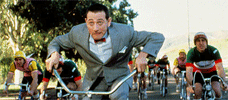
Pee-wee’s Big Adventure
1985 -

The Matrix
1999 -
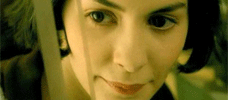
Amélie
2001 -
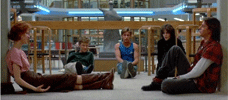
The Breakfast Club
1985 -
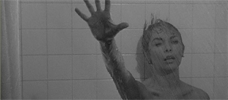
Psycho
1960 -
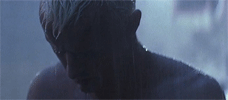
Blade Runner
1982 -
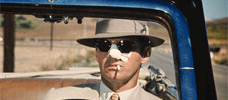
Chinatown
1974 -
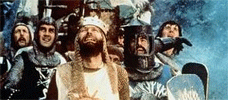
Monty Python and the Holy Grail
1975 -
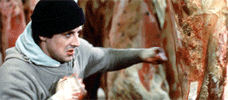
Rocky
1976 -
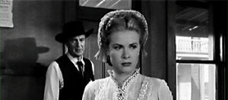
High Noon
1952 -

Ferris Bueller’s Day Off
1986 -
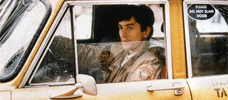
Taxi Driver
1976 -
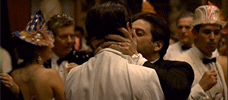
The Godfather
1972 -
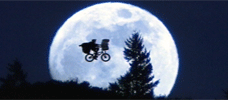
E.T.
1982 -
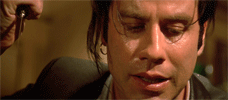
Pulp Fiction
1994
We don’t do comments anymore, but you may contact us here or find us on Twitter or Facebook.



